East Africa continues to be one of the world’s premier safari destinations, attracting adventurers eager to witness the Great Migration, track mountain gorillas, and explore some of Africa’s most iconic landscapes. As the region’s tourism infrastructure evolves and modernizes, renting a safari vehicle has become an increasingly popular option for travelers seeking independence and flexibility. However, navigating the vehicle rental landscape in Kenya, Tanzania, Uganda, and Rwanda requires careful planning and local knowledge to ensure a successful and safe adventure.
Understanding the Current Rental Market Landscape
The East African safari vehicle rental market has undergone significant changes in recent years, with new companies entering the field and established operators upgrading their fleets. The COVID-19 pandemic’s impact on tourism has led to a more competitive market, often resulting in better prices and improved service standards as companies work to attract returning travelers.
In 2025, you’ll find a wider variety of vehicle options than ever before, from basic 4x4s suitable for budget travelers to luxury safari vehicles equipped with modern amenities. However, this expanded choice also means greater variation in service quality, making careful research and selection more important than ever.
The rise of online booking platforms has simplified the reservation process, but it’s crucial to understand that not all rental companies maintain the same standards. Some newer operators may offer attractive prices but lack the experience or infrastructure to handle emergencies or vehicle breakdowns in remote areas.
Choosing the Right Vehicle Type for Your Safari
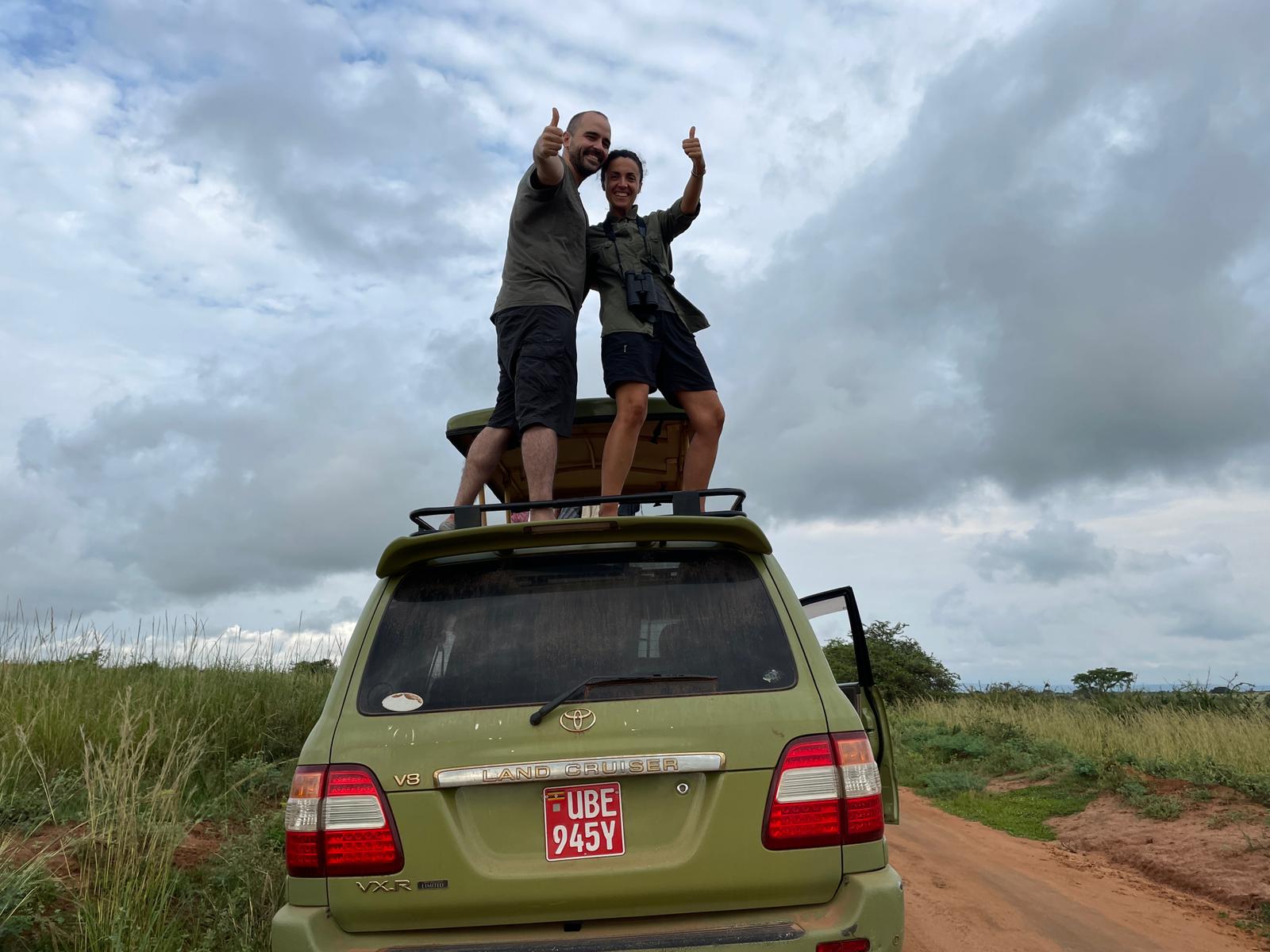 Selecting the appropriate 4×4 car for safari in Uganda, Rwanda, Kenya or Tanzania is fundamental to your safari success. The terrain and activities you plan to undertake should drive your decision-making process. For traditional game drives in Kenya’s Maasai Mara or Tanzania’s Serengeti, a standard 4×4 with a pop-up roof provides excellent wildlife viewing opportunities and photography angles.
Selecting the appropriate 4×4 car for safari in Uganda, Rwanda, Kenya or Tanzania is fundamental to your safari success. The terrain and activities you plan to undertake should drive your decision-making process. For traditional game drives in Kenya’s Maasai Mara or Tanzania’s Serengeti, a standard 4×4 with a pop-up roof provides excellent wildlife viewing opportunities and photography angles.
If your itinerary includes mountain gorilla trekking in Uganda’s Bwindi Impenetrable Forest or Rwanda’s Volcanoes National Park, prioritize vehicles with higher ground clearance and robust suspension systems. These mountainous regions feature steep, winding roads that can be challenging even for experienced drivers.
For travelers planning extended camping safaris or visiting multiple countries, consider larger vehicles with additional storage capacity. Extended wheelbase Land Cruisers or similar models offer more comfort for long-distance travel and space for camping equipment, though they may be more challenging to maneuver in tight spaces.
Vehicle age is another critical consideration. While newer vehicles typically offer better reliability and comfort, they often come with higher rental costs. Vehicles between three to five years old often provide the best balance of reliability, modern features, and reasonable pricing.
Essential Documentation and Legal Requirements
East African countries have specific requirements for vehicle rental that vary by nation and can change periodically. In 2025, most countries require an International Driving Permit in addition to your home country’s valid driver’s license. Some countries also require additional local permits or temporary driving licenses that must be obtained upon arrival.
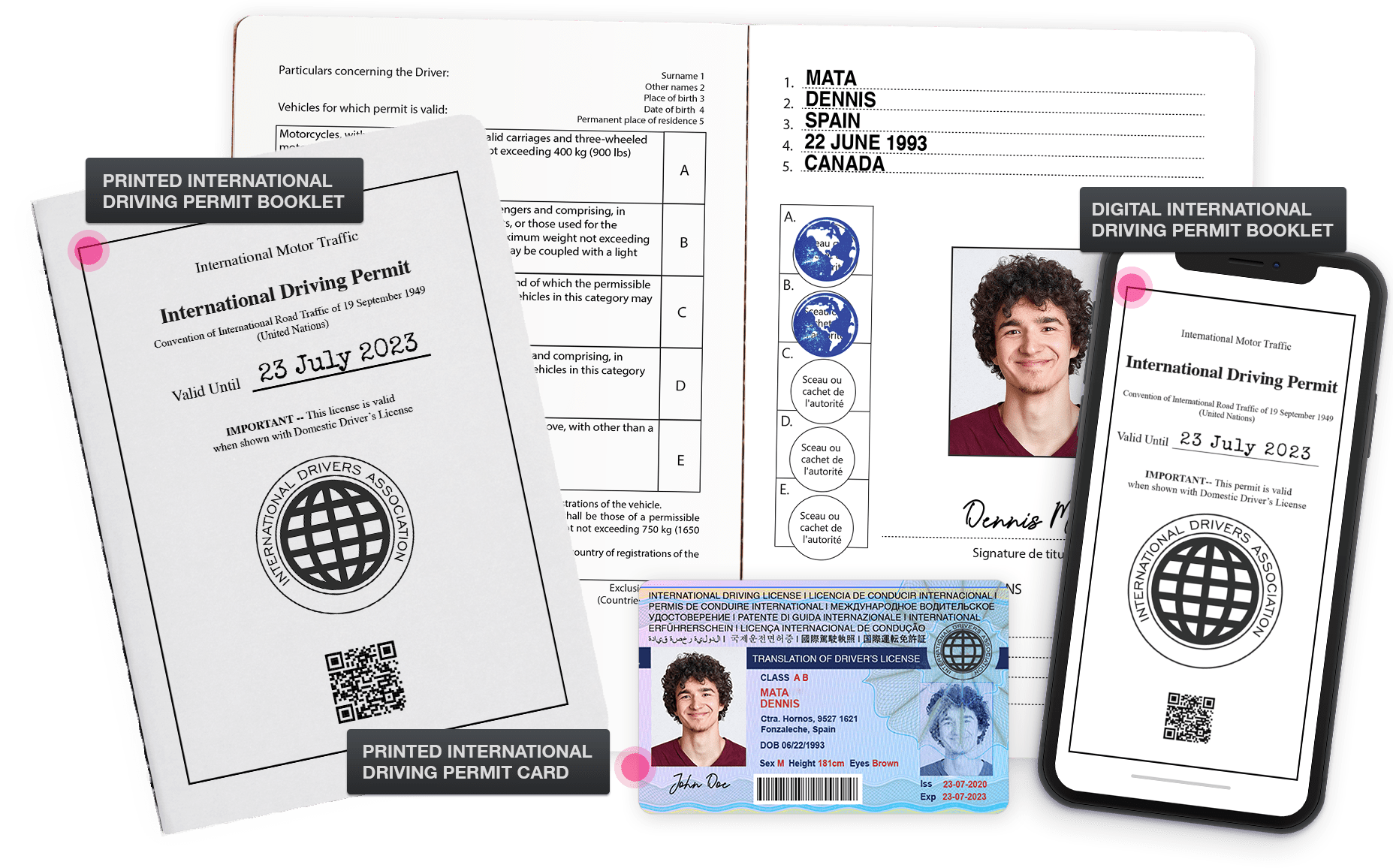 Insurance requirements have become more stringent across the region. Comprehensive insurance is strongly recommended and often mandatory for certain vehicle types. Verify that your rental agreement includes adequate coverage for theft, collision damage, and third-party liability. Some rental companies offer basic insurance packages that may not provide sufficient protection for high-value safari vehicles.
Insurance requirements have become more stringent across the region. Comprehensive insurance is strongly recommended and often mandatory for certain vehicle types. Verify that your rental agreement includes adequate coverage for theft, collision damage, and third-party liability. Some rental companies offer basic insurance packages that may not provide sufficient protection for high-value safari vehicles.
Cross-border travel documentation requires special attention. If you plan to visit multiple countries, ensure your rental agreement explicitly permits cross-border travel and that you have all necessary permits. Some rental companies restrict their vehicles to specific countries or charge additional fees for cross-border permissions.
Keep digital and physical copies of all documentation, including your rental agreement, insurance certificates, and driving permits. Border officials and traffic authorities throughout East Africa are becoming more thorough in their document checks, and having proper documentation readily available can prevent delays and complications.
Mechanical Preparation and Vehicle Inspection
Before accepting any safari rental vehicle in Uganda, Rwanda, Kenya or Tanzania, conduct a thorough inspection that goes beyond checking for cosmetic damage. East African safari conditions are demanding, and mechanical reliability is crucial when you’re hundreds of kilometers from the nearest service station.
 Examine the tires carefully, checking for adequate tread depth and even wear patterns. Uneven wear might indicate alignment issues that could lead to problems on rough roads. Ensure the spare tire is in good condition and that all necessary tools for changing tires are present and functional.
Examine the tires carefully, checking for adequate tread depth and even wear patterns. Uneven wear might indicate alignment issues that could lead to problems on rough roads. Ensure the spare tire is in good condition and that all necessary tools for changing tires are present and functional.
Test all electrical systems, including headlights, brake lights, turn signals, and hazard lights. Many safari activities begin before dawn or continue after sunset, making reliable lighting systems essential for safety. Check that the battery is securely mounted and terminals are clean and tight.
Inspect the vehicle’s undercarriage for signs of damage or excessive wear. Look for fluid leaks, damaged exhaust systems, or bent components that might indicate previous off-road damage. A quick look under the hood can reveal obvious issues with belts, hoses, or fluid levels.
Document any existing damage with photographs and ensure the rental company acknowledges these issues in writing. This documentation protects you from being charged for pre-existing damage when you return the vehicle.
Budgeting and Cost Considerations
Safari vehicle rental costs in East Africa vary significantly based on vehicle type, rental duration, season, and included services. In 2025, daily rental rates for basic 4×4 vehicles typically range from $80 to $150, while luxury safari vehicles can cost $200 to $400 per day or more.
Factor in additional costs that may not be immediately apparent in advertised rates. These often include insurance premiums, cross-border permits, GPS navigation system rentals, camping equipment, and fuel deposits. Some companies require substantial security deposits that can tie up significant amounts on your credit card for the duration of your trip.
Fuel costs represent a major expense that’s often underestimated by first-time safari vehicle renters. East African fuel prices are generally higher than North American or European rates, and safari vehicles typically consume more fuel than standard cars due to their size and the demanding driving conditions.
Consider the total cost of ownership for your rental period, including potential repair costs if mechanical issues arise. Some rental agreements make renters responsible for certain types of repairs, particularly those resulting from off-road driving or user error.
Seasonal Considerations and Timing
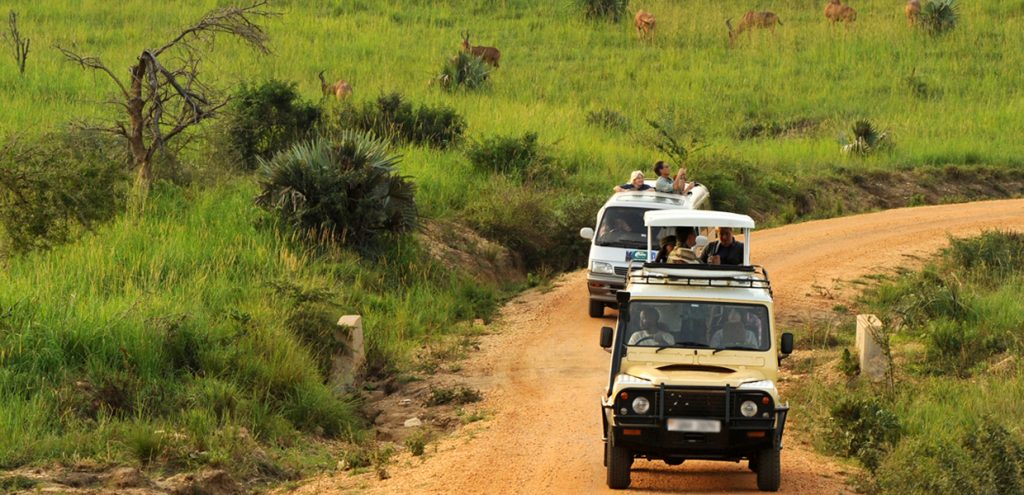
East Africa’s distinct wet and dry seasons significantly impact road conditions and vehicle requirements. The dry season, generally from June through October, offers the best road conditions and wildlife viewing opportunities but also represents peak rental demand and higher prices.
During wet seasons, many roads become impassable for standard vehicles, making 4×4 capability essential rather than optional. However, rental availability may be limited as some operators reduce their fleets during these periods due to increased maintenance requirements and reduced demand.
Book your rental well in advance, particularly for travel during peak seasons or special events like the Great Migration river crossings. Popular vehicle types and reputable rental companies often have limited availability during high-demand periods.
Consider shoulder seasons for potentially better rates and availability while still enjoying reasonable weather conditions. April-May and November can offer excellent safari experiences with fewer crowds and more competitive rental rates.
Technology and Communication Considerations
Modern safari vehicle rentals increasingly include technology features that enhance safety and convenience. GPS navigation systems programmed with East African maps and points of interest can be invaluable, though they shouldn’t replace traditional navigation methods and local knowledge.
Satellite communication devices or emergency beacons are becoming more common rental options, particularly for travelers planning to visit remote areas. These devices can be life-saving in emergency situations where cell phone coverage is unavailable.
However, don’t rely entirely on technology. Carry physical maps, compass, and basic tools for emergency situations. Battery-powered or hand-crank radios can provide weather updates and emergency communications when other systems fail.
Many rental vehicles now offer charging ports for electronic devices, but bring portable power banks and consider solar charging options for extended trips away from electrical sources.
Safety and Emergency Preparedness
Establish clear communication protocols with your rental company regarding emergency procedures and contact information. Ensure you have 24-hour emergency contact numbers and understand the process for reporting breakdowns or accidents.
 Carry a comprehensive first aid kit and basic emergency supplies, including water, non-perishable food, blankets, and emergency shelter materials. East African weather can change rapidly, and help may be hours away in remote areas.
Carry a comprehensive first aid kit and basic emergency supplies, including water, non-perishable food, blankets, and emergency shelter materials. East African weather can change rapidly, and help may be hours away in remote areas.
Learn basic vehicle maintenance procedures such as checking fluid levels, changing tires, and jump-starting batteries. Many rental companies provide brief orientations, but additional knowledge can prevent minor issues from becoming major problems.
Inform someone reliable about your planned itinerary and expected return times. Check in regularly when cell phone coverage is available, and have contingency plans for extended delays or route changes.
Working with Local Rental Companies
Building relationships with reputable local East African car rental companies often provides better service and support than dealing with international chains that may have limited local presence. Local companies typically have better knowledge of regional conditions and more flexible policies for handling unexpected situations.
Research company reputations through recent online reviews and safari forums. Pay particular attention to comments about vehicle condition, emergency response, and customer service quality. A company’s response to negative reviews can be as telling as the reviews themselves.
Consider companies that offer additional services such as equipment rental, route planning assistance, or emergency support services. These value-added services can significantly enhance your safari experience and provide peace of mind.
Establish clear communication channels and expectations before finalizing your rental agreement. Understand the company’s policies regarding vehicle exchanges, emergency repairs, and dispute resolution procedures.
Conclusion
Renting a safari vehicle in East Africa in 2025 offers unprecedented opportunities for independent exploration of some of the world’s most spectacular wilderness areas. Success depends on thorough preparation, careful vehicle selection, and working with reputable rental companies that understand the unique challenges of African safari travel.
The investment in proper planning and quality vehicle rental pays dividends in safety, comfort, and the breadth of experiences available to independent travelers. With the right preparation and vehicle, your East African safari adventure can provide memories that last a lifetime while supporting local economies and conservation efforts throughout this remarkable region.
Remember that flexibility and patience are essential virtues for safari travel. Mechanical issues, weather delays, and route changes are part of the adventure. Embrace these challenges as opportunities to experience the authentic character of East Africa and the resilience that makes this region so captivating for adventurous travelers.
Uganda Car Rental Services offers affordable car rental in East Africa for all types of travelers- looking to rent a 4×4 car for safari in Uganda, Rwanda, Kenya or Tanzania, we’ve got you covered with cheap rates guaranteed to fit your budget & interests. Simply contact us now by sending an email to info@ugandacarrentalservices.com or calling +256-700135510 to speak with the reservations team.
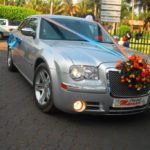
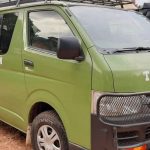
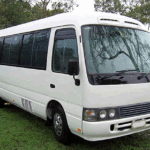
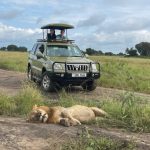
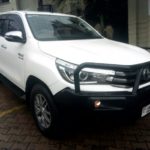
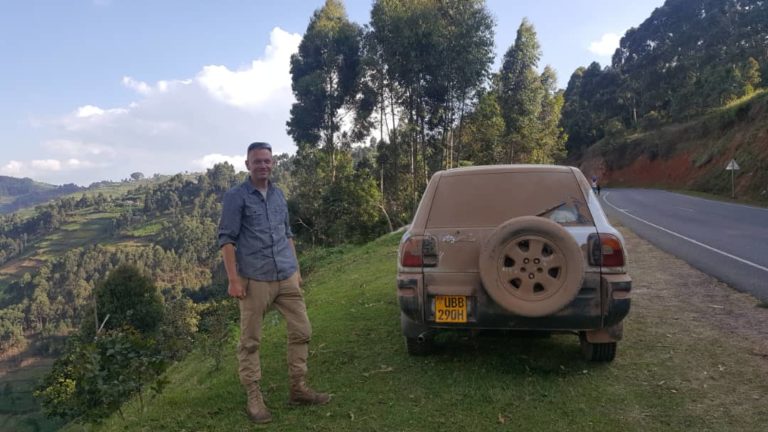




Related Articles
Uganda Wins Prestigious Best In Show- Africa Award 2026
Bwindi Gorilla Trekking: Self-Drive Guide from Kampala City
Uganda Moves Rhinos to Ajai in Conservation Milestone